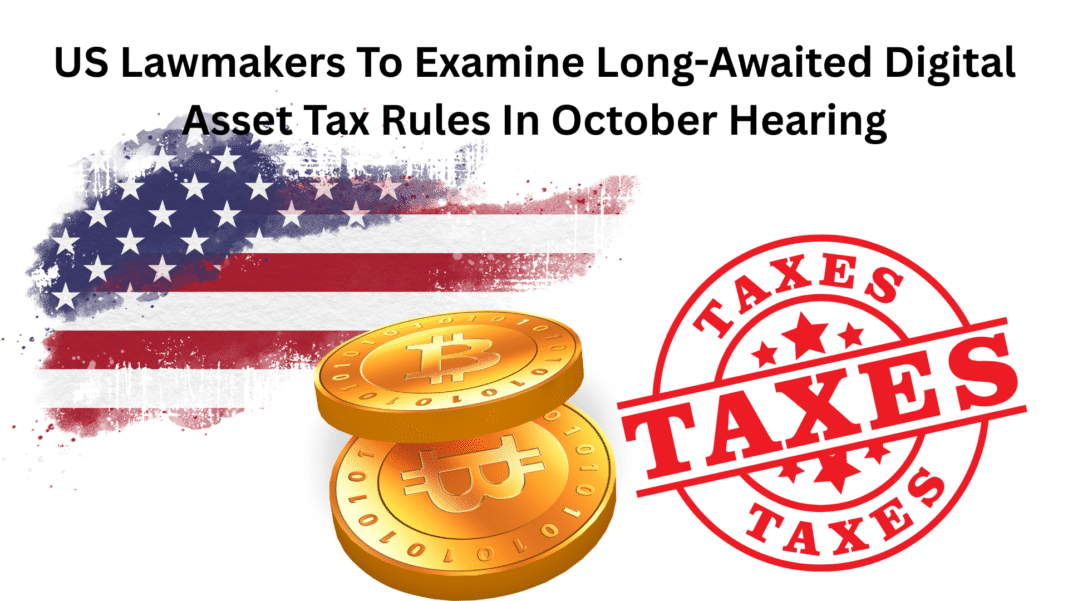The Senate Finance Committee will hold a hearing next week on how digital assets should be taxed. The session is set for Wednesday and will be led by chair Mike Crapo. Witnesses will include Lawrence Zlatkin, vice president of tax at Coinbase, and Jason Somensatto from Coin Centre.
The panel will also hear from Annette Nellen of the AICPA and Andrea S. Kramer, a crypto tax lawyer from Chicago. Lawmakers said the goal is to sort out tax rules that the White House flagged in a July report and to seek clearer guidance if Congress does not pass a new law.
Hearing details and who will testify
The notice names several expert witnesses who will explain how current tax rules affect crypto users and firms. Zlatkin will bring a corporate tax view. Somensatto will represent a policy perspective.
Nellen leads a digital assets tax task force at the AICPA, and Kramer works on crypto tax issues in private practice. Their testimony will cover everything from airdrops and staking to stablecoin payments.
White House report shapes the agenda
The hearing follows recommendations in a White House Digital Asset Working Group paper from July. That report urged lawmakers to treat crypto as a distinct asset class.
It also said tax rules for securities and commodities should be adjusted to fit digital assets. Where Congress does not act, the White House asked the Treasury and the IRS to issue clearer guidance on key issues.
Guidance is recommended if lawmakers do not act
The White House paper asked the Treasury and IRS to explain how stablecoin payments are taxed. It also asked for rules on small crypto amounts earned from airdrops, mining, and staking.
The aim is to remove confusion for everyday users and small businesses that receive crypto in routine transactions.
How the IRS treats crypto now?
Under current rules, the IRS treats crypto and NFTs as property, not currency. That means many transactions can trigger capital gains tax. Even small transfers may require reporting.
Taxpayers must report crypto moves even when they do not make a gain or loss under the present rules.
Also Read: Eric Trump Confirms Zero-Percent Tax Rate for US-Based Crypto Projects: Will Markets React?
The push for de minimis exemptions
Some lawmakers and officials want a de minimis rule to ease that burden. The idea would exempt small, routine crypto purchases from tax reporting.
White House press secretary Karoline Leavitt said the administration supports such exemptions in future law. Supporters say this would stop everyday purchases from turning into tax paperwork.
Concerns about double taxation
Senator Cynthia Lummis has argued that miners and stakers face unfair treatment. She says they can be taxed twice, that is, when they receive block rewards and again when they sell the coins. Lummis has pushed for changes that would avoid this double hit and make the rules fairer.
The debate has moved quickly since President Trump returned to office in January. Some in policy circles say the new administration wants faster progress on crypto rules to keep innovation and talent in the U.S. The panel’s hearing comes as regulators and lawmakers try to balance growth with investor protection.
What may the hearing produce?
Testimony could push lawmakers toward new bills or prompt the Treasury to issue more guidance. If Congress acts, it could set clearer rules for taxation and reporting. If not, agencies may move to clarify how the current law applies in key areas.
The hearing will also give tax experts a chance to show where rules cause real pain for users and firms.
Also Read: US Senate Repeals Crypto Tax Rule For DeFi Transaction Reporting Requirements, Bill Moves to Trump


